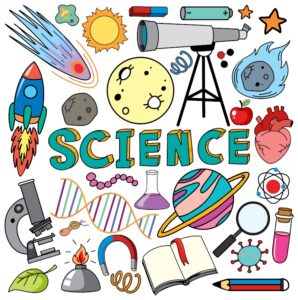Breakthroughs that Shaped Human Understanding

Scientific discoveries have been the cornerstone of human progress, revolutionizing our understanding of the world and shaping the course of civilization. In this article, we’ll explore pivotal moments in the history of scientific exploration, celebrating groundbreaking achievements that have transformed our understanding of the universe.
Ancient Contributions
From the prehistoric discovery of fire to the mathematical and astronomical knowledge of ancient civilizations like the Egyptians and Babylonians, early scientific revelations laid the foundation for our understanding of nature and the cosmos.
The Scientific Revolution
The 16th and 17th centuries marked the Scientific Revolution, characterized by pivotal breakthroughs in astronomy, physics, and mathematics. Figures such as Copernicus, Galileo, and Newton challenged prevailing beliefs, introducing heliocentrism, laws of motion, and calculus, altering the way we perceive the universe.
The Theory of Evolution
Charles Darwin’s theory of evolution, outlined in “On the Origin of Species” in the 19th century, revolutionized biological science. Darwin’s concept of natural selection provided a comprehensive explanation for the diversity of life, reshaping our understanding of the development of species.
Advancements in Medicine
Medical breakthroughs, including Edward Jenner’s development of the smallpox vaccine, Louis Pasteur’s germ theory, and Alexander Fleming’s discovery of penicillin, marked significant milestones in disease prevention and treatment, drastically improving human health and longevity.
Quantum Mechanics and Relativity
In the 20th century, Albert Einstein’s theory of relativity and the development of quantum mechanics transformed our understanding of space, time, and the behavior of particles at the smallest scales, providing new insights into the fundamental workings of the universe.
Genomic Sequencing
The completion of the Human Genome Project in 2003 represented a monumental achievement in genetics and medicine, providing a comprehensive map of human DNA and unlocking potential advances in personalized medicine and the understanding of genetic diseases.
The Double Helix Structure of DNA
In 1953, James Watson and Francis Crick revealed the double helix structure of DNA, a breakthrough in understanding the molecular basis of heredity. This discovery laid the groundwork for genetics and modern biotechnology, fundamentally changing our comprehension of how genetic information is encoded and passed on.
Plate Tectonics Theory
The theory of plate tectonics, developed in the 20th century by scientists like Alfred Wegener and later expanded by others, revolutionized geology. It explained the movement of the Earth’s lithospheric plates and the processes shaping the planet’s surface, providing a comprehensive framework for understanding earthquakes, volcanoes, and mountain formation.
Discovery of the Electron
J.J. Thomson’s discovery of the electron in 1897 revolutionized our understanding of atomic structure. It led to the development of the atomic model and formed the basis for modern physics and technology, leading to advancements in electronics, telecommunications, and countless other fields.
Theory of Special and General Relativity
Albert Einstein’s theories of special and general relativity, proposed in the early 20th century, transformed our understanding of space, time, and gravity. These theories revolutionized physics, presenting entirely new concepts that underpin modern cosmology and have been instrumental in fields like GPS technology.
The Higgs Boson Discovery
In 2012, scientists at CERN confirmed the existence of the Higgs boson, a fundamental particle predicted by the Standard Model of particle physics. Its discovery verified the mechanism by which particles acquire mass, offering crucial insights into the universe’s fundamental building blocks.
Discovery of Penicillin
Alexander Fleming’s accidental discovery of penicillin in 1928 inaugurated the age of antibiotics. This breakthrough led to the development of various antibiotic medicines, revolutionizing medicine and significantly reducing mortality from bacterial infections.
Conclusion
Scientific discoveries, spanning ancient wisdom to modern breakthroughs, have shaped human understanding and reshaped our view of the world. From the revolution in astronomy to the intricate realms of quantum mechanics and genomics, each breakthrough represents a giant leap in knowledge and innovation. These discoveries have not only expanded our understanding of the universe but have also driven the progress of civilization, shaping the world as we know it today. We hope this exploration of the history of scientific discoveries highlights the transformative power of human curiosity and innovation in unraveling the mysteries of the universe.
